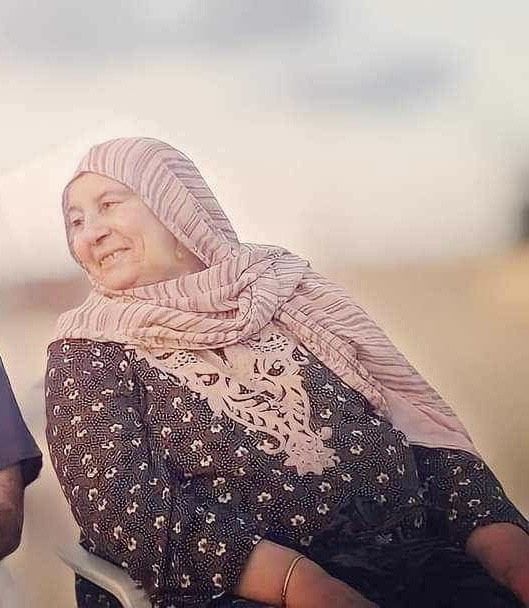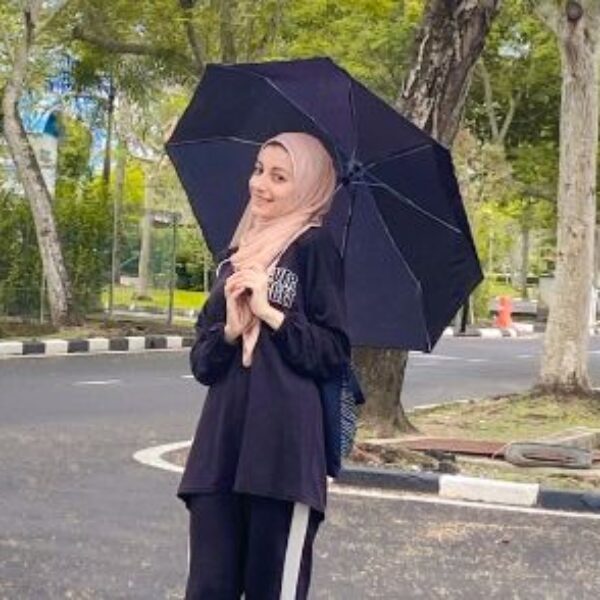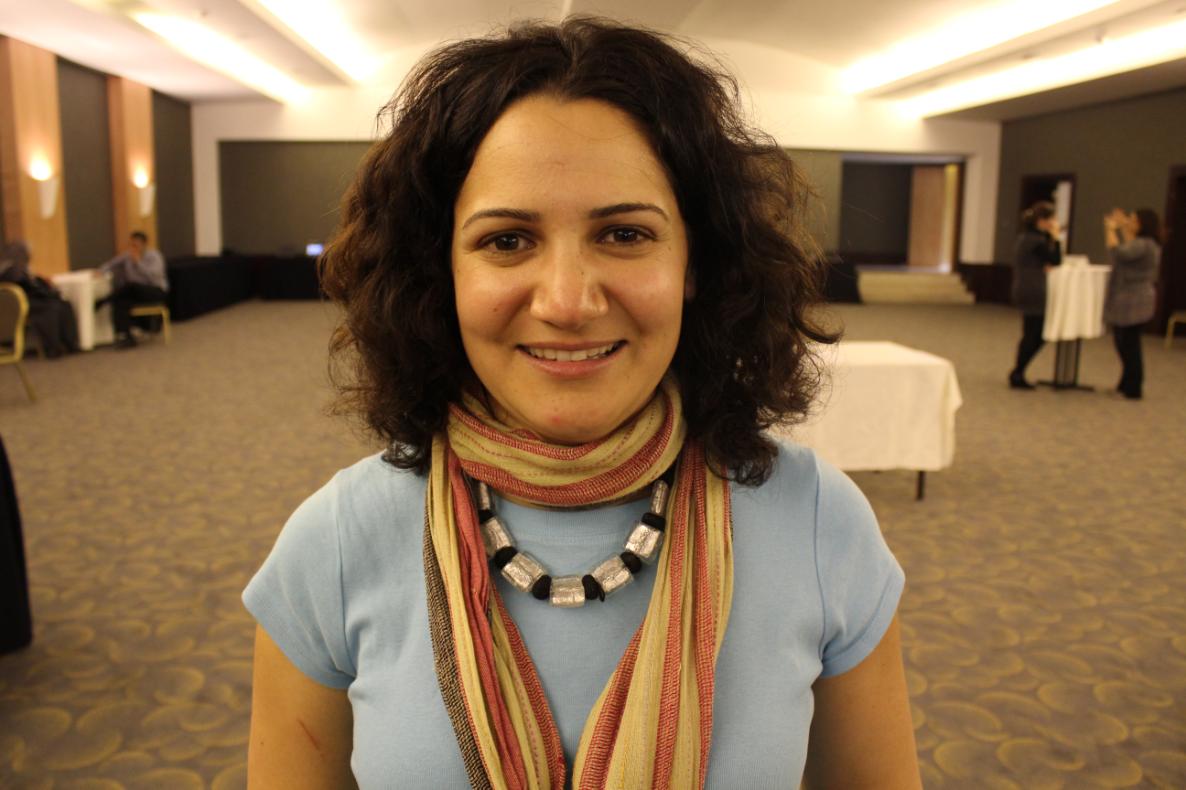After more than two months of the genocide in Gaza, December arrived with an unsettling premonition that has gripped me — a profound sense of loss, as if something precious, intimately connected to my very being, has slipped away. It’s as if I’ve been distanced from the familiar grounds of my university in Malaysia where I am currently pursuing my education away from my family and loved ones. Surrounded by strangers, this feeling left me winded and bleeding emotionally.

During a three-day trip organized by the Malaysian government at the beginning of December, spanning different cities, the air in the car grew heavy as someone somberly read aloud about the passing of a professor’s mother. At that moment, my tongue froze, and my entire body shook, rendering my attempts to go about my daily life a mere façade. Upon reaching our destination, I found myself grappling with a panic attack, desperately gasping for breath as if all the oxygen had been mercilessly extracted from the earth.
I struggled to put aside my unsettling feelings but couldn’t. Despite my attempts to engage with new friends and carry on conversations, it felt like all my efforts were in vain. That night proved to be the worst. I cried until my eyes ran dry.
Upon returning to the university campus three days later, I meticulously organized my things and tried to call my family in Gaza yet another time. I had been desperately trying to reach them for two months now, since October when I last spoke to them, and as anticipated, there was no answer.
Two days later, grappling with the alarming silence from Gaza, I reluctantly resorted to sleeping pills in an attempt to force myself to sleep. Finally, I surrendered to the tranquility of uninterrupted slumber, my restless mind finding solace in the quietude of dreams that transported me back to the embrace of my family at our happy home that no longer exists.
My heirloom from you, dear sitti
Waking up at 6 a.m., anxiety rushed back, gripping me as I frantically traced the contour of the ring you gave me in 2020, a cherished heirloom meant to be passed down through generations. It was the last time I saw you before leaving home to pursue my education abroad, my dear sitti (grandma). I was desperate to ensure the ring was still on my finger — a fragile anchor in the uncertain dawn and a source of comfort in the midst of the fear of what the new day might bring.
Since that day you gave it to me, I’ve never taken off your ring. I remember the moment vividly — it was March, 2020, when spring promised a new beginning in Gaza. You insisted that you, my mom and I should take a picture before I left Gaza. You often emphasized that we were the only three women in our line, standing resiliently amidst our family of boys and men.
The radiant day in March, with its promises, now feels like a distant memory veiled in the somber shadows of December 2023. I checked my phone again, as I do every few minutes during my waking time, and found the dreaded message from my uncle’s wife in Turkey. It said, “Sitek istashhadat….” (your grandma was martyred). My hands shook as I dialed her number. The impending sense of sickness overwhelmed me. Frantically, I asked her, “When? How? Where? How is my mother? Did you have a chance to see any of them?” The weight of my anxiety from the past few days was now mingled with the shock of this heart-breaking news. I barely took a breath as I felt my soul being forcibly torn outside of my body.
My beloved grandma, Sham’aa (candle), who was like my second mother, was martyred on December 12 when the hospital in Gaza where she was staying was bombed.
They told me she fought until the last minute, like a great warrior, having been saved from under the rubble on three different occasions. Her home, and then the homes my family sought refuge in, were all bombed, forcing them to move from one location to another in a desperate bid to escape the deadly bombs. They ended up in the hospital, where the bombs finally caught up with them and my beloved grandmother succumbed to her injuries.
Grateful to God, I find solace in knowing that her body was recovered intact, and that she received a proper burial in the hospital’s garden. This stands in stark contrast to the unfortunate fate of other martyrs who have not had the grace of a proper burial amid the relentless bombardment of Gaza, with their bodies still lying around for vultures to feast on.
With news of her martyrdom and my family’s injuries, I was struck by the harsh reality that not only has our city lost its beauty, but the beautiful people of Gaza have also been scarred, maimed and traumatized. My mother, once renowned for her extraordinary beauty, now carries the cruel imprints of war on her beautiful face. December, typically a month eagerly awaited for its strawberry harvest, has tragically morphed into a season stained with the harvest of blood.
The unsettling premonition I had been experiencing finally made sense. Tears welled up in my eyes, and I cried uncontrollably, feeling the panic attacks surge once more. My heart ached, each beat feeling like a painful prick.
I found myself recalling sitti’s words as I looked at the ring: “Never let it go. Pass it on to your daughter when she becomes a beautiful lady, just like you.” I will my dear sitti, I will transfer the ring to a necklace, ensuring you stay close to my heart.
In our last call last October, a promise lingered between us — my commitment to you and my mother. You spoke of me as the small branch in our family tree.
During that last call, you told me, “I believe in you, our beloved Basma.” You laughed as you advised, “Don’t marry just anyone; marry a handsome and wise man.”
You told me then, “Keep telling our story and keep living. One day, everything will be okay, and you will be able to go with your family to Al-Aqsa Mosque and pray for us. Never underestimate your ability to raise awareness, and while doing so, wear my clothes.”
I recently wore the black and red dress you gave me on the last day I saw you, when I was invited to speak about Gaza at my university. I tried to call you many times, itching to share the news with you, but you left before I could reach you. I will wear the other one, the white and blue dress, at my graduation ceremony, just as I promised you the moment you gave it to me. I wish I could tell you personally that I succeeded and completed my journey, but now I can’t. That chance was robbed from me.
I know you are finally in a safe place, far away from the raining bombs, away from the rubble, displacement, hunger, thirst and pain, where the stench of death is everywhere. There’s so much I will miss — your scent of tenderness and love, a fragrance ingrained in my memory since the last time I embraced you.
Who am I without you?
This year, everything is different — the transition from a joyful “Happy New Year” to a somber “bloody new year” awaits. With only a few days left until 2024, there’s a pervasive sense of sadness. I won’t be able to hear your voice on the first day of Ramadan or on Eid, reminding me to take care of myself. I no longer have a reason to rush to call you to ensure I am the first to wish you a happy Eid. A habit I started because once, you were upset with me for not being the first person to call you on Eid — it was the time difference, ya sitti, not me.
You won’t be the first person to wish me a happy birthday. You won’t tell my mother what kind of herb will help me when I am sick. No one will take your place; No one will wrap the family with prayers.
Don’t let death deprive us of your precious prayers. Continue praying for your daughter, my beloved mother, whom I don’t know anything about since last October when we last talked. She has always been hesitant to leave Gaza, feeling intricately connected to you. She was injured that same day death stole you from us, and I am uncertain if she has received any medical treatment, considering the status of the nonfunctioning hospitals targeted by the bombs.
Include my brother Aaed in your prayers; he is a good man with many dreams and skills. You are well aware of how funny he used to be before this traumatic siege. Pray for me too, asking for strength and resilience.
Please send my greetings to my grandfather, Abd-Fattah. I met him as a baby, but I only got to know him through your loving memories that kept coming for years after his passing. Also, convey my regards to your mother; tell her about me. You mentioned last time we spoke that you missed her deeply.
They say family comes first. Who am I without my family? Who am I without you? I don’t know how to answer that question, but I know my heart will always be empty. I never could imagine a time when I would tell people that you are not around anymore. No one is like you. I will keep your name alive and tell the world about you. If I’m blessed with a daughter in the future, I’ll be happy to name her Sham’aa, like you.
Thank you for being our guiding light through history, love, life and courage. Rest in peace, and let’s meet in paradise when my time on this earth concludes. Until then, I will take care of my mother, she is everything now.
Thank you for all the love you gave me. I hope time will heal.










